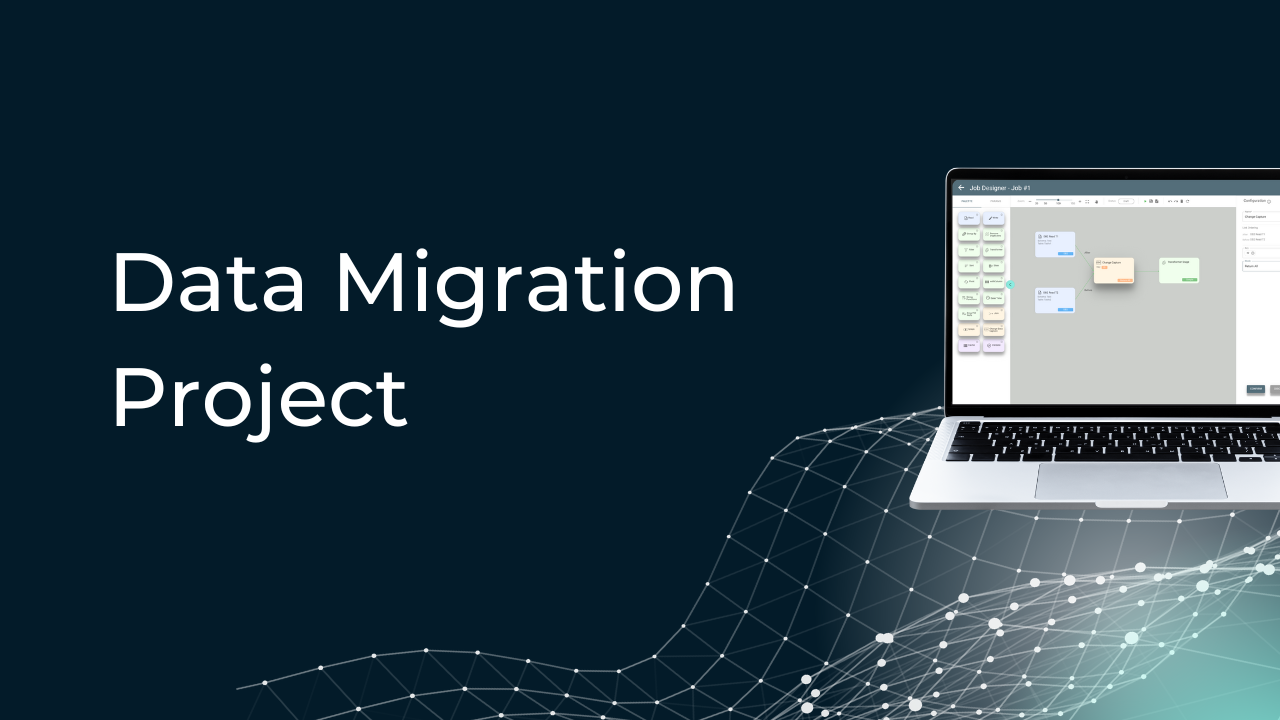Table of Content:
Table of Content:


The dynamic nature of the financial sector applies continuous pressure on companies, motivating them to consistently enhance their methodology, implement innovations, and meet the ever-growing expectations of both stakeholders and customers. As a result, banks and financial institutions recurrently seek better ways to process and maintain massive information in their growing databases, containing transaction logs, market analysis, customer insights, etc. Business intelligence (BI) is a complex of measures situated somewhere in between storing information and actively making business decisions. Providing a vast variety of tools and services, business intelligence in banking industry and the financial sector as a whole helps companies to gain more accurate insights and as a result make more weighted decisions, unlocking new opportunities to evolve. A new word in data analytics, BI poses a healthy shift from traditional reporting and is an absolute necessity for businesses that don’t want to stay behind the competition.
The Importance of Business Intelligence in the Financial Sector
Even a small transaction and the tiniest customer interaction becomes a part of data, let alone investments or regulatory reports, generating massive amounts of data for the banking and financial industry to manage. Originally, banking institutions used to rely on the manual methodology of squeezing valuable insights from large data volumes, but the fast-paced and especially today’s data-driven environment enforces changes and new ways to handle information.
The need to convert effectively processed data into golden insights is one of the primary factors in implementing business intelligence in banking. This isn’t a whim but rather a smart decision that allows banks to follow the constantly increasing regulations and challenges of the financial landscape by delivering personalized services, managing risks like never before, and making healthy wise decisions based on rich, accurate, and up-to-date information. Customers, in turn, receive services crafted specifically to their needs, becoming loyal satisfied clients.
One more motivator towards applying business intelligence for financial services is the increasing regulatory compliance requirements. Both global and regional regulatory requirements, such as anti-money laundering (AML), Know Your Customer (KYC), General Data Protection Regulation (GDPR), etc., tend to be updated periodically expecting businesses to adjust in order to avoid fines and other legal challenges. This is one more point for BI, not only simplifying the monitoring and reporting processes but also helping financial institutions automate compliance efforts, thereby reducing the risks associated with human error or delayed responses.
To add even more to the importance of BI, with its tools applied, companies gain the ability to identify and manage risks in real-time, monitoring market trends, customer behavior, and transaction data thanks to advanced analytical capabilities. Detecting unusual patterns or potential risks beforehand allows banks to take proactive measures by flagging suspicious transactions, adjusting their investment portfolios in response to market fluctuations, etc.
Key Use Cases of Business Intelligence in Banking
Making business work better is not the only motivation of BI in banking, but instead, the benefits of implementing this toolset go far beyond just that. So here are just a few examples of what BI instruments are good for in the financial sector:
Fraud Detection and Prevention
It’s not a secret that fraudulent schemes tail the evolution of digital banking, with new ways of getting illegal control over someone else’s finances being invented with enviable sophistication. But the good news is when new schemes emerge, so do the ways to battle them. And these ways are introduced by advanced BI tools which allow to detection of fraudulent activities in advance before they do damage, instead of reacting to them as they are happening or even afterward. By monitoring and analyzing transactions in real-time, BI systems identify abnormal patterns and other anomalies based on historical data. As an example, a customer that usually makes small local transactions suddenly initiates a large transfer abroad, the system may flag it as a suspicious action and trigger an investigation.
Enhancing Customer Retention and Personalization
Truly a defining feature of today’s banking system is the ability to craft services specifically under customer’s preferences. Institutions can develop more personalized offers by analyzing extensive datasets, including customer spending habits, interaction history, life events, etc., thanks to business intelligence for financial services. For instance, a bank can identify a customer who is approaching retirement and offer them specialized financial planning services crafted specifically for their objectives. In a similar manner, banks can foresee other life events, such as home purchases or education funding requirements, and proactively offer loan products or investment services.
Risk Management and Credit Scoring
The financial well-being of any institution depends on effective risk management. Banks are able to assess credit risk, monitor market risk, and optimize operational risk thanks to the tools they get with business intelligence in the banking industry. BI enables a more dynamic approach compared to traditional credit scoring models that rely on historical data too heavily. Financial companies finally get a smart opportunity to create more precise credit risk models by integrating real-time market data, customer behavior analytics, and external factors. Lending institutions that need to balance profitability with minimizing defaults find this especially beneficial.
Regulatory Compliance Automation
Definitely one of the most resource-intensive areas for financial institutions is compliance but it has become easier and swifter with the introduction of business intelligence in finance. BI instruments help to reduce manual intervention by automating the collection, analysis, and reporting of compliance-related data. Real-time monitoring of regulatory changes alerts institutions about events that require immediate attention, keeping banks in compliance with local and international regulations. This helps to avoid costly mistakes and legal issues.
Improving Operational Efficiency
Another benefit of business intelligence for banks that is also often overlooked is the possibility of boosting internal operational processes. Routine tasks, such as data processing and reporting, can be automated by financial institutions with the help of BI systems which not only frees up employees letting them concentrate on more strategic initiatives but also minimizes the risk of human error. BI tools also help identify areas where operational efficiencies can be further enhanced. To be more precise, a bank may analyze its customer service response times and find ways to make communication processes easier and faster, which results not only in customer satisfaction but also in lowering operational costs.
Real-World Success Stories of Business Intelligence in Banking
To give you a better picture of the powerful operational capabilities of business intelligence for banking, let’s explore a couple of success stories of financial companies that implemented BI systems to overhaul their customer-related performance. Before incorporating these mechanics, they both used to have issues with fragmented customer data spread across multiple departments and this led to disruptions in service and missed opportunities for cross-selling.
A North American bank armed itself with a BI service to integrate all customer data into a single platform. As a result, a wide landscape of each customer’s financial history, preferences, and potential needs was opened up before the institution. The bank used this data for personalization of its interactions with customers by recommending specific products and services based on their financial goals. This increased customer satisfaction rate by 25%, and cross-selling rates by 15% which boosted their revenue growth substantially.
In another example, a European Investment Fund used BI tools to enhance its portfolio management process. The fund was able to assess the risk and return of its portfolios more accurately by utilizing real-time analytics. This allowed portfolio managers to make more informed investment decisions, resulting in a 10% improvement in overall portfolio performance.
The Advantages of Business Intelligence for Financial Services
Implementing BI tools into financial operations yields massive advantages with some of the most impactful including:
-
Good decisions.
Decision-makers are no longer reliant on outdated or incomplete information with access to real-time data. By aggregating data from multiple sources, BI tools provide a holistic view of the business. The use of business intelligence and analytics services drives companies to make more informed decisions, whether determining credit risk, forecasting market trends, assessing operational performance, etc.
-
Raising performance while saving money.
Automation of data collection, processing, and reporting with BI tools helps you eliminate the need for labor-intensive manual processes which leads to significant cost savings because now much fewer resources are required to handle day-to-day tasks. Furthermore, the ability to identify inefficiencies within the organization allows banks to make their operations faster and easier, reducing costs even further.
-
Risk mitigation.
Risks are inevitable in the financial industry, but BI instruments allow institutions to handle them masterfully., BI provides real-time insights that help institutions take proactive steps to mitigate threats beforehand, from identifying potential credit risks to monitoring changes in the market. For example, a bank can identify patterns that may indicate a higher likelihood of default by analyzing historical loan data, which allows it to adjust its lending criteria accordingly.
-
Satisfied customers.
The ability to personalize customer interactions leads to higher levels of satisfaction and loyalty. With BI tools, banks can anticipate customer needs and offer finely crafted solutions, resulting in a better overall experience. This not only improves retention rates but also is also healthy for the bank’s reputation, thereby attracting new customers.
Expanding BI Applications Across Financial Services
While traditional banking has known a deep positive impact from incorporating business intelligence in finance, other financial sectors also feel the influence of BI applications. Below are just some of the ways BI instruments are being used across various financial services:
-
Wealth management.
In the wealth management environment, BI tools are being used to create more personalized investment strategies for clients. Wealth managers can offer tailored advice that aligns with clients’ long-term financial goals by analyzing market trends, client behavior, and historical performance. This leads to improved portfolio performance and higher levels of client satisfaction.
-
Insurance.
The insurance sector’s reliance on BI tools keeps growing, aimed at optimizing risk assessment and premium pricing models. Insurers can offer more accurate pricing while reducing the risk of fraudulent claims by analyzing claims data and customer demographics. Additionally, BI tools help streamline the claims process, improving efficiency and reducing costs.
-
Asset management.
BI tools in asset management allow firms to track the performance of their assets in real time, helping managers to make informed decisions about asset allocation. The ability to analyze historical performance and predict future trends empowers asset managers to optimize portfolio strategies.
-
Investment banking.
BI tools make the top instrumental in analyzing market data, mergers and acquisitions, and stock trends in the realm of investment banking. By getting fresh accurate insights that were previously unavailable or difficult to access, companies boost their decision-making, which leads to improved investment outcomes thanks to BI tools.
Capitalizing on the Power of Business Intelligence
To truly capitalize on the power of BI, financial institutions must modernize their data infrastructure. Many banks still operate on legacy systems that cannot handle the data volumes required for advanced BI applications. Migrating to modern data architectures is critical, and services like ETL migration consulting and data engineering are essential for this transformation.
By implementing modern ETL (Extract, Transform, Load) systems, banks make data collection from various sources smooth and simplified and optimize their analytics processes. Moreover, investing in data engineering ensures that financial institutions build a strong foundation for long-term BI success.
Ultimately, business intelligence for financial services must be integrated across all departments, from risk management to customer service, to maximize its potential. Institutions that embrace BI not only improve their day-to-day operations but also position themselves for long-term success in an increasingly competitive financial landscape.
Contact us































































